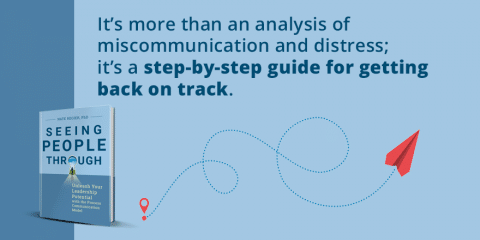
Dealing with Someone Who Overreacts and How to De-Escalate
Share viaHave you ever been accused of overreacting? Have you ever accused someone else of overreacting? You might think differently when you pay attention to emotional triggers and threats to energy supply. Recognizing these two things can help you understand when dealing with someone who overreacts.
Most often what we label as overreacting is, in fact, a normal reaction to something of which we aren’t aware or don’t understand. On the surface it may seem like someone is making a mountain out of a molehill, but what if there’s more going on than you know when dealing with someone who overreacts?
Here are two reasons people might respond to a situation more strongly than expected.
Emotional Triggers
Everyone has emotional triggers, those situations that invite emotions we’d rather not feel. For some people it’s the grief of lost time or things that didn’t go as planned. For some it’s the anger associated being treated as less than, or wanting to protect someone we love. For others, feeling responsible for our own behaviors and the impact they have on others can be debilitating. Emotional triggers are heavily influenced by personality. Many times people respond to the emotional triggers unique to their personality, and it may seem out of proportion to the current situation. These are important perspectives to keep, when dealing with someone who overreacts.
Threat to Energy Supply
We all have a preferred energy source that fills our tank and keeps us energized. Some people are energized by solitude. Others might be energized by recognition of their principled work and strong convictions. When a situation threatens our energy supply, it’s a natural human instinct to protect ourselves. Often when dealing with someone who overreacts, that self-protective behavior seems out of character or out of proportion, especially if we compare it to how we might respond in that same situation.
How to De-Escalate When Someone Overreacts
Next time you are dealing with someone who overreacts, before you jump to conclusions or take it personally, try these tips to show empathy and help de-escalate the situation:
- Consider emotions that might be triggered by the situation. What emotions might you (or they) want to express. If it’s you, how might you express these emotions in a healthy way without attacking or blaming anyone, including yourself. If it’s someone else, how might you create a safe place for others to share their emotional triggers without judgment?
- Get curious about energy supply. What is being threatened in this situation that may not be immediately apparent? If it’s you, could you explain this without attacking or blaming anyone? If it’s someone else, ask curious questions about what’s most important for them in this situation.
 Do you want to learn about your personality-specific emotional triggers and energy supply? Do you want to see exactly how you overreact and how you can help yourself and others de-escalate? Take the next step with my new book and accompanying PCM Leadership Profile.
Do you want to learn about your personality-specific emotional triggers and energy supply? Do you want to see exactly how you overreact and how you can help yourself and others de-escalate? Take the next step with my new book and accompanying PCM Leadership Profile.
Book Your Next Keynote Speaker

Author and Co-founder of Next Element, Dr. Nate Regier is available to speak at your upcoming event.
Submit a Speaker RequestPodcast: Listen to Nate "On Compassion"
 Listen to the Podcast
Listen to the Podcast



0 Comments
Add comment